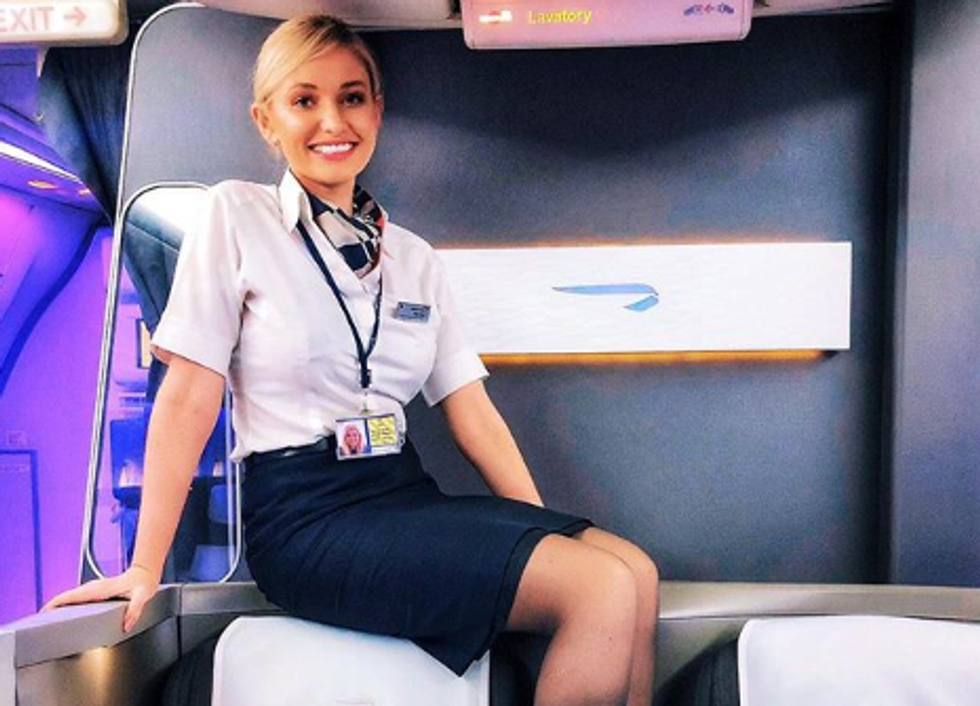Showbiz
Moya Lothian-McLean
Jul 26, 2020

Getty, ITV, Amy Hart, indy100
Amy Hart has always done things on her terms.
When she emerged from theLove Islandvilla last summer, straight into the glare of the spotlight, she hadn’t been voted out by a baying public. The 27-year-old had been unceremoniously dumped by fickle partner Curtis.
But rather than wait around and watch him make limp passes at some other unlucky woman, the former air hostess decided to pack her bags and her remaining dignity and call time on her villa stay. When she got out, she had the sympathy of the nation, an audience of well-wishers and a guest chair waiting on the Loose Women panel.
She could have sold enough flat tummy tea and blackhead removers on Instagram to keep her in crushed velvet couches for a lifetime. But like several of her castmates, Hart elected to divert from the well-worn and lucrative path we’ve come to expect.
Although she’s keen to stress that these differences don’t make her ‘better’ than her peers, Hart acknowledges they were there from the start.
She recalls an early conversation while in the Love Island villa where someone suggested discussing politics.
“Me and Amber [Gill] were really up for it but all the others said ‘No no, I’ve been told not to talk about politics, I’m not getting involved’.
“I think if you’re more conscious of making sure that you can still be in the public eye and be impartial because you’re worried about who you might not be able to work with, rather than sticking up for what’s right, I just don’t know whether you’re the right kind of person to be in the public eye,” she says.
This reaction isn’t surprising, seeing as Love Island is now little more than a conveyor belt for mid-tier influencers, models or Championship footballers to boost their social media following and attract sponsorship deals with whatever fast fashion company has the biggest marketing budget that month.
Last summer’s cast certainly mopped up the sponsorship contracts (Gill signed an astronomical £1m deal with clothing company MissPap) a significant number decided to redefine public expectation of their post-Love Islandcareers on their own terms.
But nearly a year on, Hart has become an unusually political voice for her particular tier of celebrity.
Recently she hit the headlines after criticising former employer BA for its treatment of staff, urging followers to join a union to protect their rights. In May she penned aGuardianop-ed calling for extended government support for freelancers during the Covid-19 crisis, using the example of her friends and colleagues in the theatre industry to illustrate how far short the current SEISS scheme falls.
Thank you all for your lovely comments. Just trying to use the platform I’ve been given to raise awareness of issue… https://t.co/xUhzC4Aa6w— Amy Hart (@Amy Hart) 1590698579
All this is part of Hart’s determination to remain a “responsible influencer”, as she puts it. Besides, she tells me self-deprecatingly, she hasn’t got the camera skills to be a full-time content creator.
I don’t know how to take these amazing Instagram pictures.
I didn’t realise how hard it was to be an influencer.
My original plan [when I left Love Island] was to go back to BA with a couple more Instagram followers and make some money on the side. But obviously that didn’t happen.
Instead she became a media personality and, once the first few hectic months after the villa was over and Hart had time to breathe, she began focusing on pursuing her passions, including becoming more involved in musical theatre.
A lifelong Labour member, Hart has always been involved in politics – she was a regular attendee of party meetings in her pre-BA life. But the day-to-day of a reality TV star doesn’t leave much time to focus on the government machines. Yet with the outbreak of coronavirus and a national lockdown, like many others Hart has found herself with time on her hands and the ability to start paying proper attention to politics again.
It’s what led to her very public dressing down of airline BA, which announced plan to cut up to 12,00 jobs back in April. At the time, Hart slammed this as “opportunistic and greedy”.
BA is just one part of the story, though: she says that everywhere she looks people are being failed by private companies and the state alike.
“Lots of my family and friends are being affected by different things right now; the SEISS scheme, the BA redundancies – my uncle works for a school and a lot of the families aren’t working right now and can’t afford to feed their kids,” she says.
We’ve been doing food bank collections to help out. [The UK] is one of the richest countries in the world and loads of families are going to go hungry this summer.
We need to help these people.

Many reality stars want to scrub all records of their grunt work from their Cinderella story.
Hart, on the other hand, is unusual in her openness when it comes to her former life.
She points out that she spent nearly a decade flying, but only five weeks in the villa.
“A friend of mine said someone had messaged them and said ‘Why does Amy keep posting about being an air hostess? She’s a celebrity now',” she says, a hint of frustration creeping into her voice.
“But it was a huge part of my life. I do know what it’s like to work for big companies, I do realise what it’s like to be worried about cost-cutting exercises and redundancies.”
“It might backfire on me at some point. But right now, I don’t work for British Airways and don’t have the restrictions of working for them. I can stand up and use my voice. So why shouldn’t I?"
Before Love Island Hart was introduced to the power of unions.
She joined BA shortly after 12,500 cabin crew members embarked on a 12-day strike over Christmas and New Year in protest at low pay and cuts that affected travel concessions. Hart claims that tensions between unions and bosses meant that by the time she joined BA, the usual presence of the unions at staff inductions had been vetoed. Instead, she says, she began her union membership after being urged to by colleagues. It proved a decision that would pay dividends.
“I had a few close shaves with BA,” she remembers. “I got to Orlando without my passport and they fined BA £10,000, but my union struck a deal with the company so I could keep my job."
“Sometimes there were scheduling mix-ups which mean you were rota'd duties that weren’t within the limitations of what you could do during that day. All you had to do was phone the union, they’d sort it out for you."
Hart knows what a safety net a union can be.
“A lot of people say ‘No, don’t join a union, put the money in a bank account and get an employment lawyer’,” she says.
“But employment lawyers don’t know British Airways policy inside out. If you worked for say, EDF energy, they wouldn’t know their policies inside out. Whereas the unions do. It’s a really good tool to have.”
Is she pleased with the current resurgence of union membership? Of course.
Now she’s started talking, Hart has no intention of shutting up, she tells me – no matter the pushback.
Surely being real and genuine is more important than keeping everyone happy? Yeah, people who are really staunch Tories probably don’t like me anymore but that’s OK.
I really admire celebrities who do come out and say ‘No actually, this is what I think’.
What’s next for her? More theatre work, she hopes, and continuing to flex her lobbying muscles.
Before she rings off, Hart tells me her ultimate goal is to be relatable.
“I just want people to realise I’m a normal person,” she says, a little mournfully.
It is perhaps what has made her stick out among such a crowded field. Hart reflects the demands for an ‘evolved’ version of reality TV stars of the 2000s, as younger audiences are increasingly politicised and leaning into anti-capitalist undercurrents.
No, the flat tummy tea trade is not going away soon, but neither are the Amy Harts of this world who represent more than simply a marketing gimmick and instead pair their sponsored clothing shoots with transparency about where they make their money, and messages to fans concerning their rights.
This reflects a significant sea change.
Love Island has long been a conduit for conversations around social issues – sexual harassment, emotional abuse, mental health to name a few. But figures like Amy Hart, Amber Gill and fellow Islanders who now feel comfortable publicly attending Black Lives Matter protests and speaking out about sex positivity, are now active agents within those conversations, starting discussions rather than simply being the subjects of them.
It feels like a shift is happening – and that a more political, responsible form of influencing could be here to stay.
Top 100
The Conversation (0)













